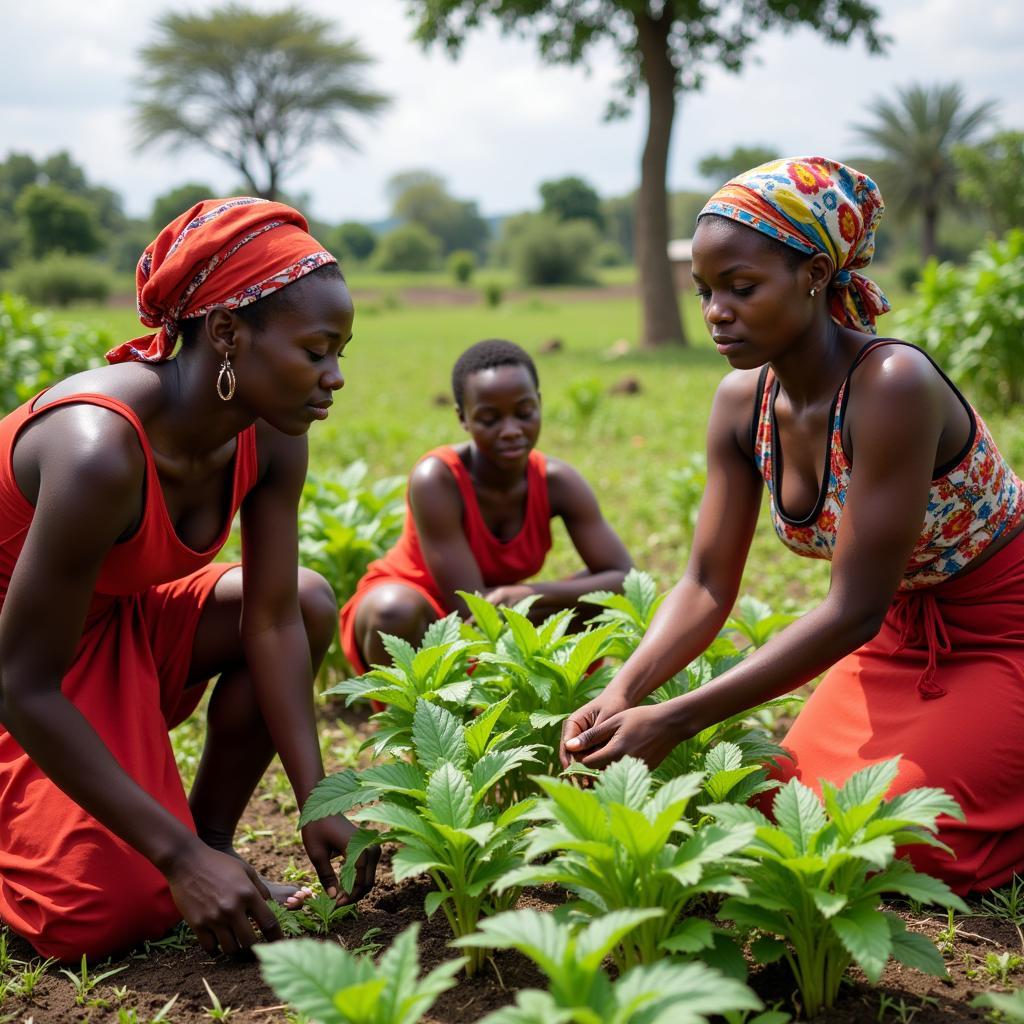African Communities Action Plan: A Path to Sustainable Development
African communities are vibrant and diverse, embodying a rich tapestry of cultures, traditions, and aspirations. However, they also face significant challenges including poverty, inequality, and climate change. Creating a sustainable future for these communities requires a strategic and collaborative approach known as an African Communities Action Plan. This plan serves as a roadmap for empowering local communities to drive their own development, harnessing their inherent strengths to create a brighter future for generations to come.
Understanding the Need for an Action Plan
An African communities action plan is more than just a set of goals and objectives; it’s a commitment to collaborative action and sustainable change. It recognizes that true progress requires addressing the root causes of societal issues and empowering communities to become active participants in shaping their own destinies.
Several factors underscore the urgent need for such a plan:
- Persistent Poverty: Despite Africa’s vast natural resources, many communities grapple with persistent poverty, hindering access to basic necessities like healthcare, education, and economic opportunities.
- Impact of Climate Change: African nations are disproportionately vulnerable to the effects of climate change, leading to droughts, floods, and food insecurity, which further exacerbates existing challenges.
- Social Inequality: Deep-rooted social inequalities, often stemming from historical injustices, continue to marginalize certain groups, limiting their potential and hindering overall societal progress.
Key Elements of a Successful Action Plan
An effective African communities action plan is built on a foundation of community engagement, local knowledge, and a deep understanding of the unique context of each community. Here are some essential elements:
1. Community Ownership and Participation:
The cornerstone of any successful action plan is the active involvement of the community it aims to serve. This means ensuring that community members are not just beneficiaries but active participants in every stage of the process, from identifying challenges to designing and implementing solutions.
2. Clear and Measurable Goals:
A well-defined action plan sets clear, measurable, achievable, relevant, and time-bound (SMART) goals that are aligned with the specific needs and priorities of the community. These goals should be ambitious yet realistic, providing a clear direction for collective efforts.
3. Focus on Sustainable Solutions:
Rather than short-term fixes, the action plan should prioritize sustainable solutions that address the root causes of the challenges at hand. This might involve investing in renewable energy sources, promoting sustainable agricultural practices, or creating vocational training programs that equip community members with valuable skills.
4. Collaboration and Partnerships:
Addressing complex challenges requires a collaborative approach. An effective action plan fosters partnerships between community organizations, government agencies, NGOs, and private sector actors. By pooling resources, expertise, and networks, these partnerships can amplify impact and drive meaningful change.
 Empowering Women Through Sustainable Agriculture
Empowering Women Through Sustainable Agriculture
5. Monitoring and Evaluation:
To ensure accountability and track progress, a robust monitoring and evaluation framework is crucial. Regular assessments allow communities to measure the effectiveness of their interventions, identify areas for improvement, and make necessary adjustments along the way.
Addressing Key Challenges: Examples in Action
Let’s explore how an African communities action plan can be implemented to address some of the most pressing challenges:
1. Economic Empowerment:
- Challenge: Lack of economic opportunities, particularly for youth and women, leading to unemployment, poverty, and social unrest.
- Action Plan: Establish micro-loan programs, provide vocational training in high-demand skills (e.g., carpentry, tailoring, computer literacy), and support the development of small and medium-sized enterprises (SMEs).
2. Access to Healthcare:
- Challenge: Limited access to quality healthcare services, particularly in rural areas, leading to preventable diseases and high mortality rates.
- Action Plan: Train and deploy community health workers, improve rural healthcare infrastructure, and implement awareness campaigns focused on preventative healthcare and sanitation practices.
3. Climate Change Adaptation:
- Challenge: Increased droughts, floods, and unpredictable weather patterns impacting agriculture, water resources, and overall livelihoods.
- Action Plan: Promote climate-smart agricultural practices, invest in water harvesting and irrigation technologies, and implement early warning systems for extreme weather events.
The Power of Collective Action
The success of an African communities action plan hinges on the power of collective action. By working together, communities, governments, and organizations can create a brighter and more sustainable future for all.
Remember, the African race is not monolithic; it’s a beautiful tapestry of diverse cultures and communities, each with its unique challenges and opportunities. Tailoring action plans to these specific contexts is essential for achieving meaningful and lasting change.
Conclusion
African communities possess immense potential, resilience, and a deep-rooted spirit of innovation. By embracing a collaborative and community-driven approach through action plans, these communities can overcome challenges, unlock opportunities, and create a future defined by prosperity, equity, and sustainability. Let us work together to empower African communities to become architects of their own destinies and build a brighter tomorrow for generations to come.
FAQ:
1. Who develops an African communities action plan?
An action plan is most effective when developed collaboratively by the community itself, with the support of local leaders, NGOs, and government agencies.
2. How can I support an African communities action plan?
You can support by volunteering your time, donating to reputable organizations working in this space, or advocating for policies that empower local communities.
3. What is the role of technology in these action plans?
Technology can play a transformative role by improving access to information, facilitating communication, and enabling innovative solutions in areas like healthcare, education, and agriculture.
4. How can we ensure the sustainability of these initiatives?
Sustainability requires building local capacity, ensuring community ownership, and creating financially viable models that can thrive over the long term.
5. What are some examples of successful action plans in Africa?
Numerous inspiring examples exist across the continent, from community-led reforestation projects to initiatives empowering women entrepreneurs.
For further insights into relevant topics, you might be interested in exploring:
- The African herbal pharmacopoeia and its potential for healthcare.
- The impact of 9000 years of sea-level change along the southern African coastline.
Need help or looking for more information?
Contact us at:
Phone Number: +255768904061
Email: kaka.mag@gmail.com
Or visit us at: Mbarali DC Mawindi, Kangaga, Tanzania.
Our dedicated customer support team is available 24/7 to assist you.

